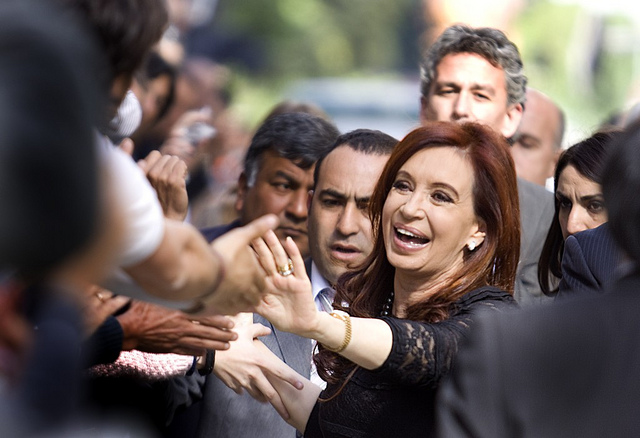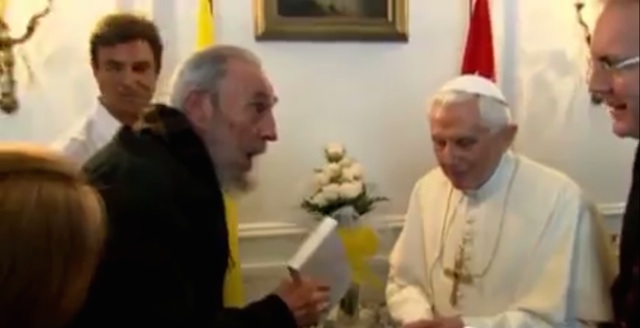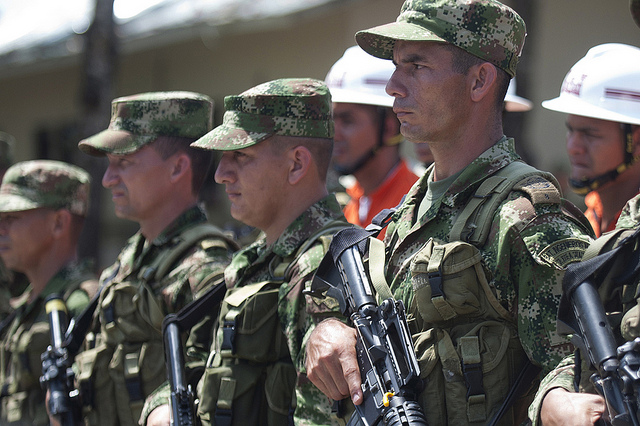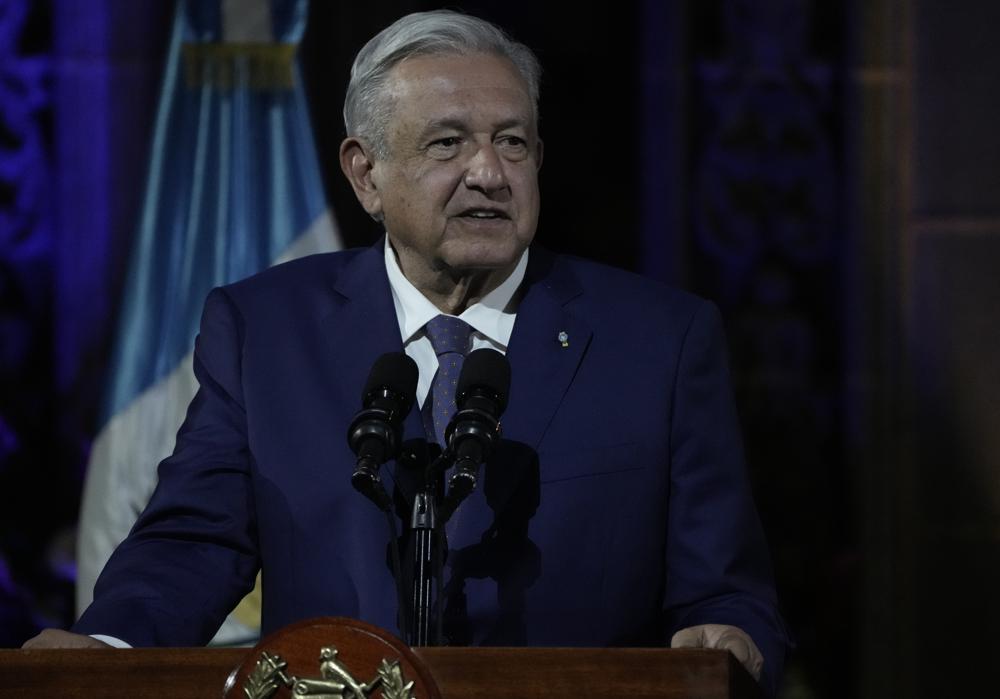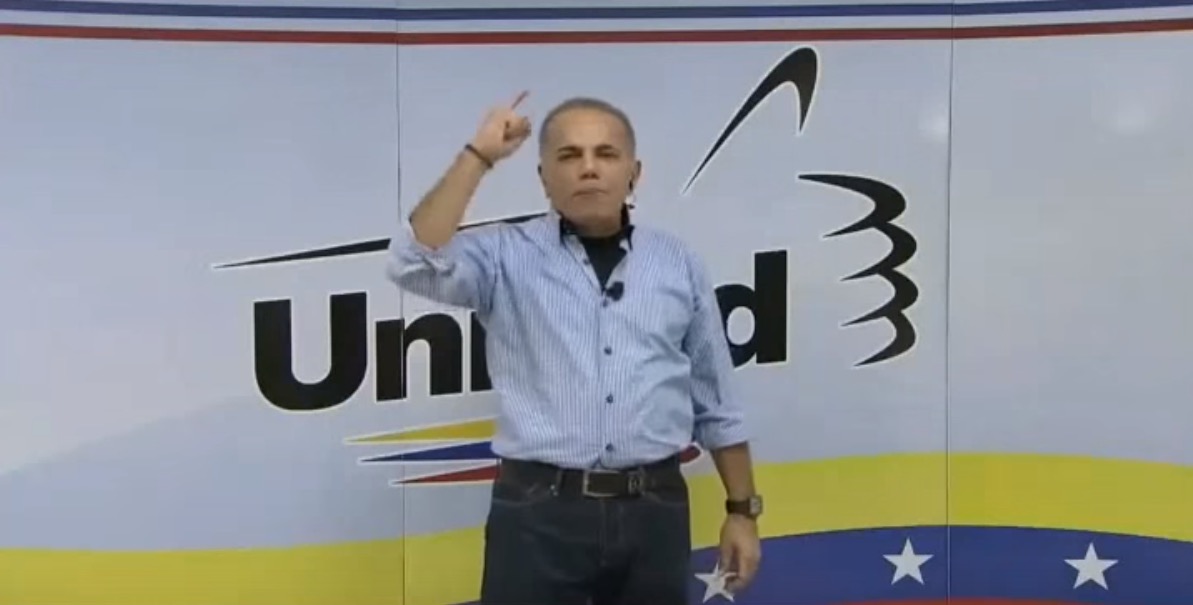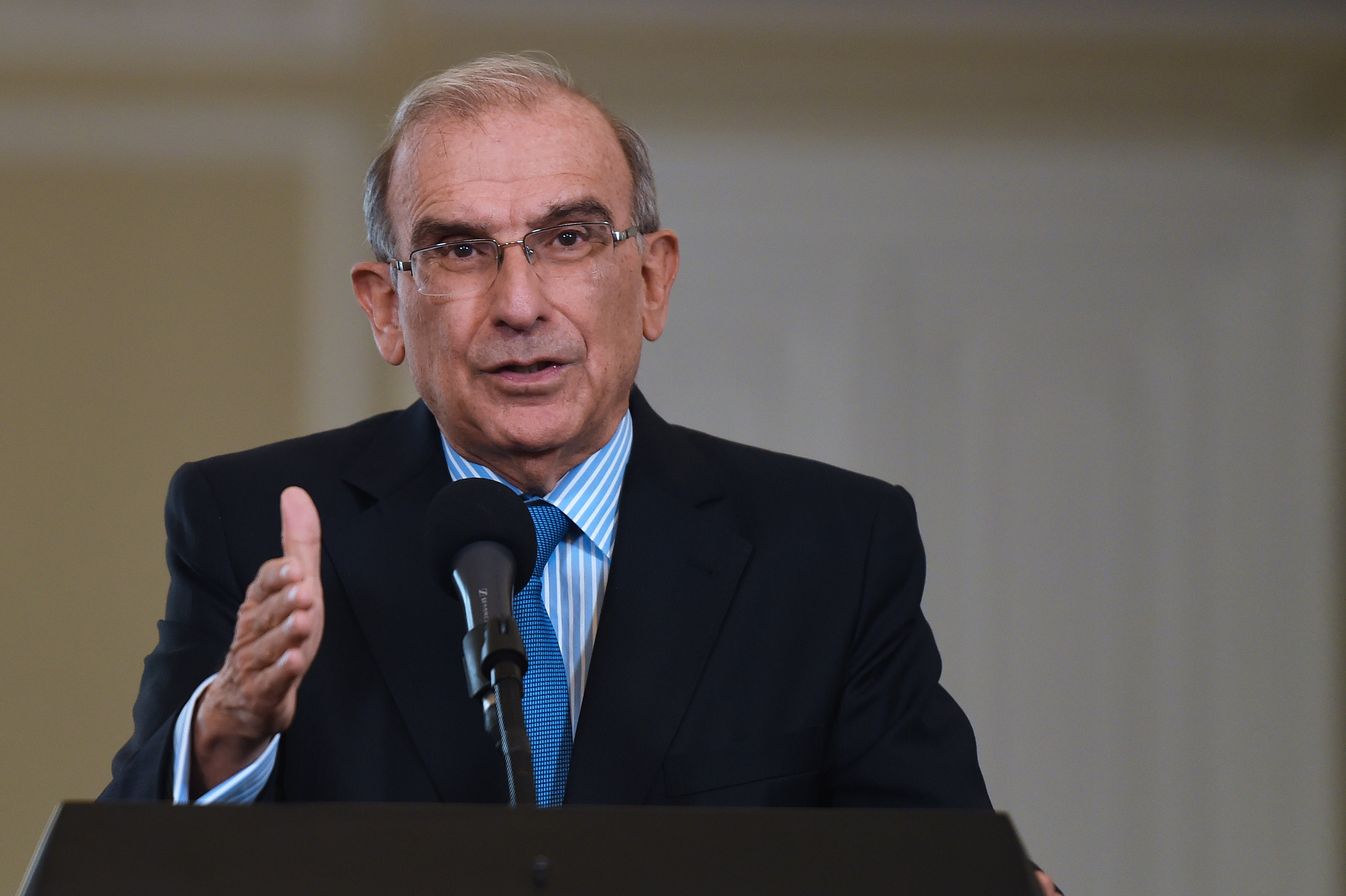
Andes, Colombia, Latin America: Week in Review
Colombian Government, FARC Agree to Search for Tens of Thousands of Missing People
October 19, 2015 By Staff
Top Story — Colombia’s government and FARC rebels agreed Saturday to collaborate on finding the tens of thousands of people who have disappeared since the country’s armed conflict began more than 50 years ago.
The announcement addresses a key sticking point between the two sides in peace negotiations, which have lasted for nearly three years in Havana, Cuba. According to Colombia’s attorney general, 52,000 people have disappeared since the war began, but local victim groups say that number may be higher: between 70,000 and 100,000.
Representatives for both sides said they will create a special unit to search for the disappeared, and that they will release information to the families of the missing. They have also pledged to share information with the International Committee of the Red Cross, which will conduct its own searches for victims. Some 220,000 people have been killed during the war, the longest ever in Latin America.
President Juan Manuel Santos hailed the development as “another step for peace.” Officials have been holding peace talks in Cuba since November 2012, and are committed to a March 23 deadline for a final deal. Once an agreement is reached, it will have to be approved by Colombian voters before it can be ratified.
Headlines from the Western Hemisphere
North America
- The U.S. State Department has decided to withhold nearly $5 million in anti-drug funds to Mexico, prompted by a failure to protect human rights.
- Mexican officials allege that Joaquín “El Chapo” Guzmán, head of the Sinaloa Cartel, injured himself while pre-emptively fleeing from a police mission to recapture him in the country’s northwestern mountains on Friday.
- Information acquired by Reuters has revealed that Mexican President Enrique Peña Nieto’s plan to limit migration into the country from Central America, dubbed “Frontera Sur,” has resulted in a 40% increase in migrant complaints of abuse by Mexican officials working in the National Migration Institute.
- In 2013, nine undocumented activists walked across the border from Mexico to the United States, demanding to be let in and granted asylum — a story that NPR’s Latino USA tells in full in their latest episode, The Dream 9.
Caribbean
- Ahead of Haiti’s presidential elections on Oct. 25, polls conducted in Port-au-Prince and Miami disagree about who is leading among the 54 candidates in the race, though three candidates have emerged as frontrunners: government-backed Jovenel Moïse, Jude Célestin and former Senator Moïse Jean-Charles.
- On Saturday, the Cuban government denied claims made by Fox News and a Miami-based research institute that the country has sent troops to Syria in support of President Bashar al-Assad.
Central America
- Former Guatemalan army Gen. Héctor Mario López Fuentes died today at the age of 85. López was in charge of the army during the most violent period of the country’s 36-year civil war that ended in 1996, and was arrested on charges of genocide in 2011, though his health prevented the case from going to trial.
- An Al Jazeera America investigation published Saturday looks into the cases of Central American asylum seekers held for months in for-profit detention centers run by U.S. Immigration and Customs Enforcement.
- Nearly 900,000 small-scale Guatemalan farmers living in Central America’s “Dry Corridor” are struggling to produce enough food to feed their families amid a year-long drought thought to be caused by shifting El Niño weather patterns.
Andes
- Murders on the Colombia-Venezuela border dropped by 10 percent since Venezuela’s controversial security crackdown in August, Colombia’s defense minister admitted in a report, saying that “the border with Venezuela on the Colombian side is safer now than a year ago.”
- Five people died and seven more were injured when a small plane crashed in a residential neighborhood in Bogotá shortly after take-off — the third fatal small-aircraft crash in three months in the Colombian capital.
- Not even thieves are interested in Venezuela’s currency, the bolívar, according to a report in The New York Times, which points out that the country’s economy will shrink by 10 percent and that inflation is predicted to hit 159 percent in 2015.
- Venezuelan President Nicolás Maduro has called for legal action against Lorenzo Mendoza, the billionaire CEO of the country’s largest private company, after state media broadcast his phone call with an economist who thinks Venezuela should receive a loan and “adjustment” plan from the International Monetary Fund.
Southern Cone
- Two polls published on Sunday indicate that Argentine ruling party candidate Daniel Scioli could win the Oct. 25 presidential election outright — one week after a poll by the Poliarquia consultancy indicated that Scioli would likely face an opponent in a run-off.
- Brazilian President Dilma Rousseff reiterated that she has no plans to fire Finance Minster Joaquim Levy, despite calls from the president of her own Workers’ Party that she do so. Levy faces pressure over the country’s spiralling recession and climbing inflation rates.
- After Uruguay took in five Syrian families fleeing the country’s civil war last year, many Uruguayans have become disillusioned with the refugees, whose complaints about living conditions in Uruguay make them appear to be “rude, ungrateful guests,” according to The Associated Press.
